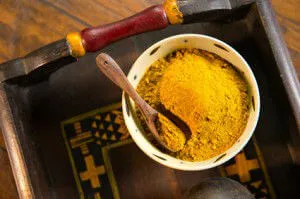Cumin, a key flavor in many Indian, Mexican and Middle Eastern dishes, is one of the most popular household spices around. Besides being a delicious addition to savory and sweet dishes, however, it has a lot of diverse and surprising health benefits.
The history of cumin dates back to ancient times. Keeping a bowl of cumin on the dinner table was a common ancient Greek custom, and many modern Moroccans still practice this tradition. Cumin is also mentioned in the Bible as a seasoning for bread and soup, and in the Middle Ages, cumin was the most ubiquitous spice to be found growing in the gardens of Medieval towns.
Ayurvedic medicine uses cumin as an overall wellness tonic, and to treat a large variety of ailments, as it is nutrient-rich, is thought to boost the metabolism and the function of the digestive system, and has anti-inflammatory and antiseptic properties.
A 2002 study performed at Annamalai University in Tamil Nadu, India tested the effects of cumin extract on diabetic rats. Results linked the cumin extract with reducing pancreatic inflammatory markers, as well as reducing total cholesterol and triglycerides.
Cumin has been associated with having liver detoxification properties, as well as the ability to stimulate the production of digestive enzymes. Digestive enzymes help the body to break down food, and also aid the liver in ridding the body of toxins. The manner in which cumin is beneficial to the metabolism is linked to its property of increasing heat throughout the body, therefore aiding metabolic function.
Traditional uses of cumin have included the treatment of all sorts of stomach problems, such as indigestion, nausea, diarrhea and even morning sickness. Cumin tea, made by boiling about a teaspoon of cumin seeds in a cup of water for two or three minutes, can help relieve stomach pain. Cumin is also rich in iron, which is especially necessary for pregnant women.

The best way to enjoy the freshest cumin is to grow your own, and harvest the seeds. If this is not something you wish to do, purchase organic cumin seeds whole, and grind them yourself using a mortar and pestle.
Besides making a wonderful and aromatic curry base, cumin can be sprinkled on apple slices, added to smoothies (you only need a tiny bit!) or used to season poultry dishes. Use your imagination, and let your taste buds be your guide.
-The Alternative Daily
Sources:
http://www.kcparadiseindia.com/Cumin.pdf
http://www.marksdailyapple.com/cumin/#axzz2hrRIgm51
http://www.ncbi.nlm.nih.gov/pubmed/12220968
